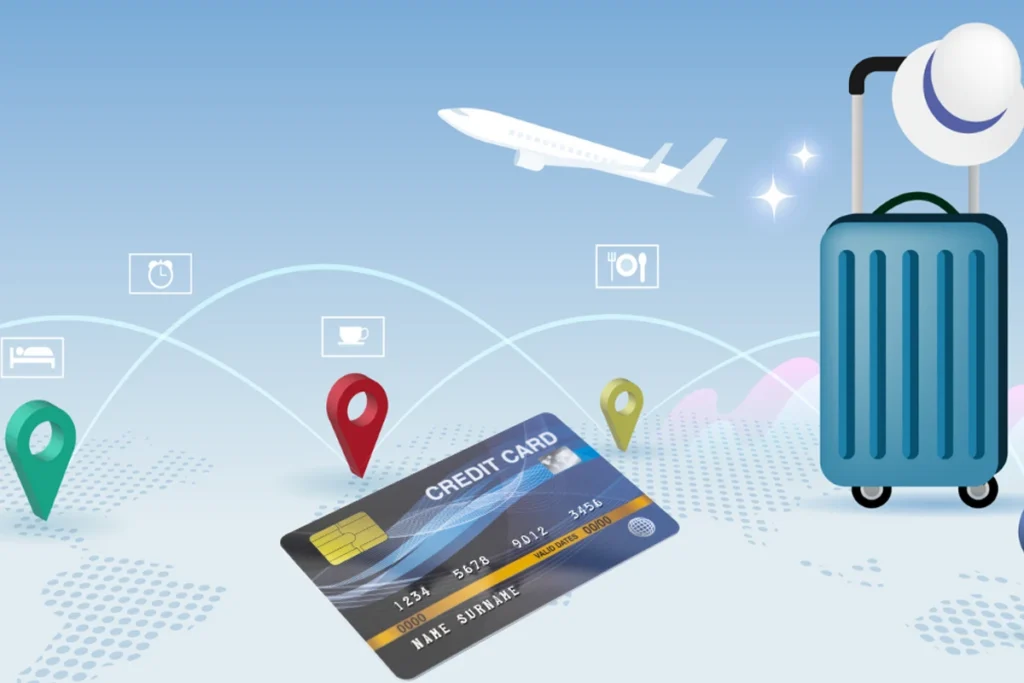Travel Card Benefits—Is It Worth It for You?
The craze for travel has increased these days, and so has the trend of travel credit cards. Everyone wants a comfortable journey, access to the airport lounge, savings on baggage fees, and reward points. But experts say that maximizing travel card benefits has become more difficult these days than ever before. The question that arises is—will getting a travel credit card be the right decision for you?
When the annual fees of premium travel cards are increasing and changes are coming in the perks, it is time to rethink which card to keep in your wallet. Ted Rossman, an industry analyst at Bankrate, says the annual fee itself isn’t a bad thing; you just have to ensure you’re getting value out of the card. But the truth is that maximizing value isn’t as easy now as it was before.
Travel Card Benefits and Their Hidden Costs
In June, the Chase Sapphire Reserve card raised its annual fee from $550 to $795—a 45% jump. In addition, Capital One changed the rules for the Venture X Rewards and Venture X Business cards. Now, even after paying a $395 annual fee, customers won’t be able to bring free guests with them to the airport lounge. The guest policy has also changed for American Express Platinum cardholders—now you have to spend $75,000 to be eligible to take two guests for free.
It is important to understand that when the annual cost is so high, you have to decide according to your usage and lifestyle whether these travel card benefits are worth it for you.
One mistake that will reduce the value of travel card
Experts say that if you carry the balance of your travel credit card month-to-month, you will not be able to take full advantage of its benefits. Interest charges easily eliminate the value of your rewards.
The average credit card APR is around 20.13%, but premium travel cards have rates between 25% and 30%. Meaning if you are carrying debt, your rewards points will be quite expensive. Ted Rossman says that rewards cards generally charge high interest, so it is important to use them responsibly.
Travel Card Benefits—Brand Specific or General?

You get two types of travel credit cards in the market—one is co-branded, which is linked to an airline, hotel, or cruise chain, and the other is a general travel card. If you travel frequently with the same airline or hotel chain, then a co-branded card may be right for you.
For example, an airline credit card can give you free checked bags, priority boarding, status upgrades, and special discounts. But note—these benefits only work with that particular brand. For example, a Southwest card won’t give you any benefits with United.
General travel cards are best suited for people who don’t want to be tied to a single brand. Their rewards points are more flexible, and you can use them on multiple airlines or hotels.
Balance of Annual Fees and Perks
Some travel credit cards don’t charge an annual fee, while premium cards range from $95 to $500+. Naturally, those with lower fees have limited perks. But for frequent travelers, TSA PreCheck credits, big sign-on bonuses, and annual travel credits can be very valuable.
Sally French, NerdWallet’s travel expert, says to visit the card issuer’s website for a detailed list of perks. One perk, like a free checked bag, could help you recover your annual fee in just two trips.
Which Travel Card Is Best for You?
When choosing a card, focus not just on perks, but on your travel habits and lifestyle. If you rarely travel, a no-annual-fee travel card may be the best option. For frequent flyers who travel a lot with a specific airline, a co-branded card will offer more value.
If you already have a high annual fee card but you are not able to fully utilize it, downgrading the card can be a smart choice. It will also be better for your credit score, because downgrading the card instead of closing it keeps the account history safe.
Final Thought on Travel Card Benefits

Travel credit cards can be a powerful tool when you use them correctly. But it is important to keep in mind their annual cost, high interest rates, and restricted perks. Every traveler’s travel pattern is different, so instead of blindly following any card, take a decision according to your needs, budget, and habits. If you spend responsibly, make timely payments, and make maximum use of the benefits, you can upgrade your travel experience with a travel card.
Disclaimer:
This article is for informational purposes only. Before applying for a credit card, know your financial situation, spending habits, and the issuer’s terms.
Also Read
New Income Tax Bill 2025: Top Parliamentary Panel Suggestions & Key Changes






